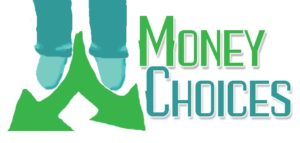 Weddings are an emotional celebration. We love the idea of a bride and groom starting a new life together. We use words like “two becoming one” or “sharing your lives as one,” meaning that everything will be shared as though the couple are no longer individuals. I believe this puts a lot of unnecessary sentimental pressure on a couple to share all their finances even though it’s not always necessary, or even wise, to do so for every single account or property.
Weddings are an emotional celebration. We love the idea of a bride and groom starting a new life together. We use words like “two becoming one” or “sharing your lives as one,” meaning that everything will be shared as though the couple are no longer individuals. I believe this puts a lot of unnecessary sentimental pressure on a couple to share all their finances even though it’s not always necessary, or even wise, to do so for every single account or property.
So, how do you merge two separate financial lives? There are many successful ways to do this. Some couples keep their individual incomes and expenses separate by having separate bank accounts, credit cards etc. Then, they have a joint expense account for their household bills that they each put money into. Sharing the joint account can be as simple as having each person responsible for different bills, or figuring out the bill totals and having each put in their half. Some people base the joint account total on a salary percentage (this works great when one spouse earns more money that the other). And, of course, some people merge everything and all accounts are joint.
You need to think about what type of financial people you are. Here are 3 questions to think about that will help you decide (and could possibly save some financial squabbles):
- Are you a saver and your spouse a spender? Having one person be the fall back for financial emergencies can be challenging financially and to the marriage.
- Are you both spenders? What will happen when there are no reserves for emergencies?
- How do you each handle bill payment? Are all your bills paid on time? Do you have bills that have slipped through the cracks?
Answers to these questions can be tricky, but worth the discomfort. Proactive thought can be a financial life saver for your future. Double check your answers by looking at your account statements and credit reports. You may not be as good at finances as you think you are, or you might be better than you thought. Discuss your habits with each other, as well as any outstanding issues that could affect you both.
I am a firm believer that you both should participle in your finances. You have joint goals in your future, so you should do the financial planning for this together as well. Don’t let the responsibility fall to one person. If something were to happen to the “responsible” one, then the other party would be left completely in the dark, not knowing anything about the accounts or how to deal with them. I have seen many situations like this. It may seem kind, or convenient, to handle the money if your partner doesn’t know how, but it’s not.
Whichever way you choose to handle your finances as a married couple, make sure it’s a mutual decision based on real knowledge of your habits and goals.
 What have you been telling yourself? What lies do you currently believe? How have they affected your financial choices and behaviors?
What have you been telling yourself? What lies do you currently believe? How have they affected your financial choices and behaviors?
 Whether you are just starting out or nearing retirement, there are things you can do now to make retirement easier for you. You don’t want to retire and not have the money to do what you want. Here are some things you should think about:
Whether you are just starting out or nearing retirement, there are things you can do now to make retirement easier for you. You don’t want to retire and not have the money to do what you want. Here are some things you should think about:
 , we’ve had some warm days and some bitter cold days. But spring is coming!
, we’ve had some warm days and some bitter cold days. But spring is coming!


 nces.
nces.